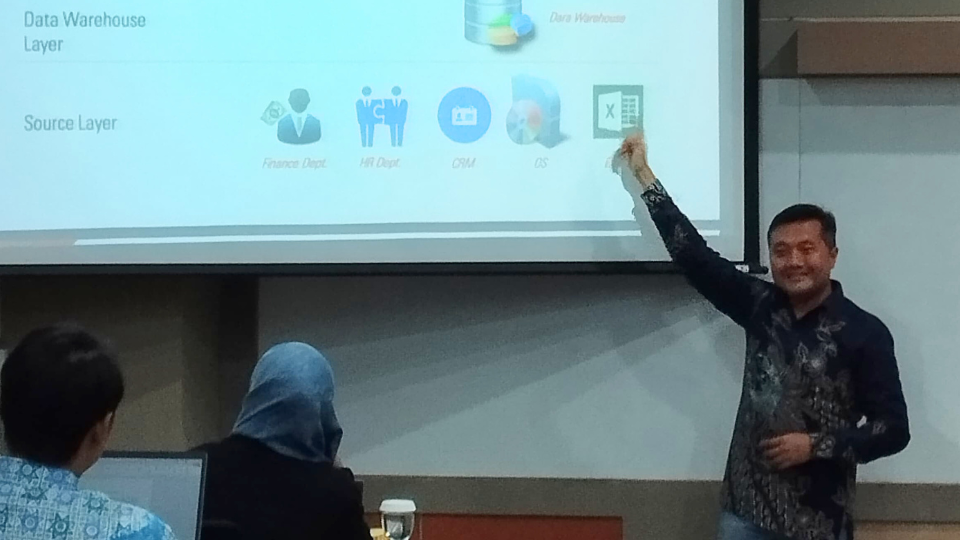The ability to adapt is one of the critical points for the business world and companies to face real-world problems that are increasingly fast. The ability to adapt efficiently to internal and external changes is the concept of an agile company. Amazon is an example of an agile company implementing a data-driven decision-making system by integrating its operational processes using business intelligence concepts.
Ismail Fahmi, Ph.D., the founder of PT. Media Kemels Indonesia (Drone Empirit), explained that business intelligence is a technology for collecting, storing, accessing, and analyzing data collection to support business decision-making systems. In general, there is statistical analysis, prediction, and data mining to help analyze business performance by understanding the past and predicting the future.
However, big data challenges are also increasing. He elaborated the difficulty of getting external data sources and gaining data from various departments in the organization with a big role. Lastly, the data is also unstructured, leading to bias and an obstacle to obtaining information.
“The integration of these tools and strategies is critical for companies looking to achieve business agility, enabling them to adapt and respond effectively to changing markets, public opinion, and consumer needs.”
Generally, there are three layers of business intelligence: data sources, data storage, and data presentation. Fahmi himself explores using social data, which is generally open source and free, as a solution to challenges.
Social data offers numerous benefits, including understanding consumer behavior, early trend detection to drive product development, insights into why a specific product succeeds in the market, and obtaining accurate information for product marketing. However, it’s crucial to contextualize and analyze social data, especially from social media, to avoid misconceptions. Businesses can effectively achieve this through Customer Relationship Management (CRM) systems, which help them understand customer needs and the product-customer relationship better.
Technically, data from social media platforms like Instagram, Twitter, Facebook, or LinkedIn provides a real-time, unfiltered view, encompassing comments, shares, and retweets. By applying Natural Language Processing (NLP) techniques to assess emotional sentiments (positive, negative, or neutral), businesses can unlock further advantages, enabling them to address customer preferences and tap into new opportunities in the digital age.




